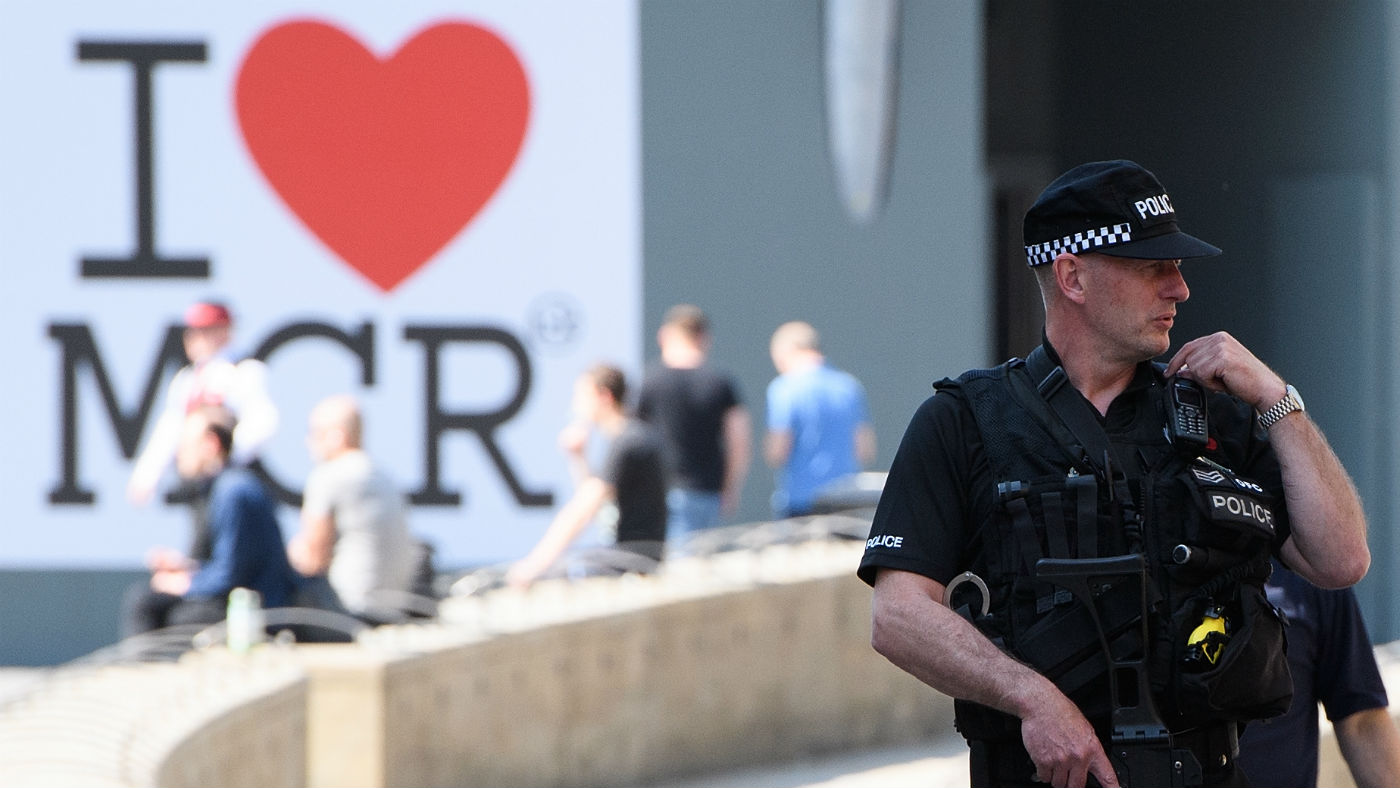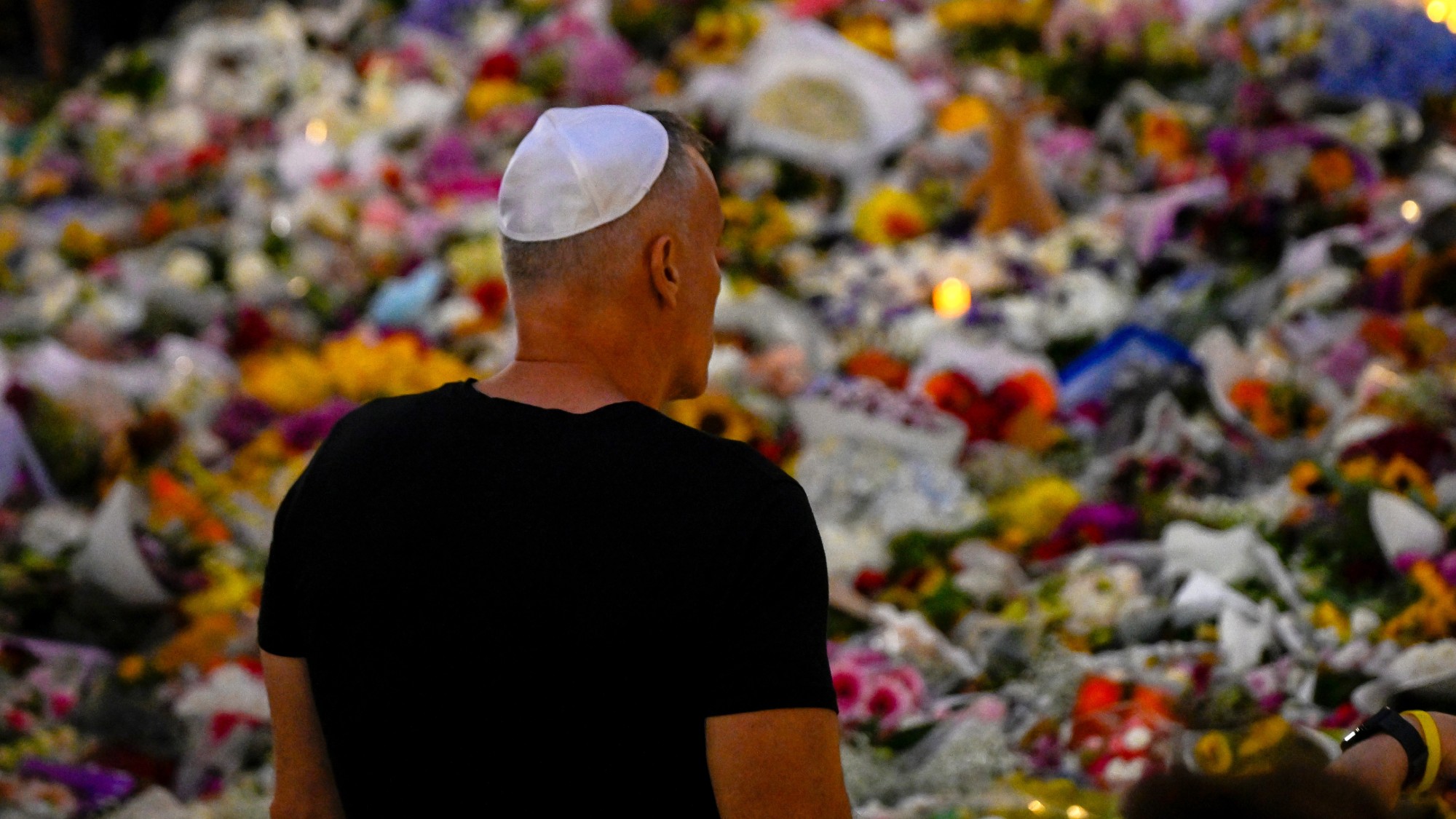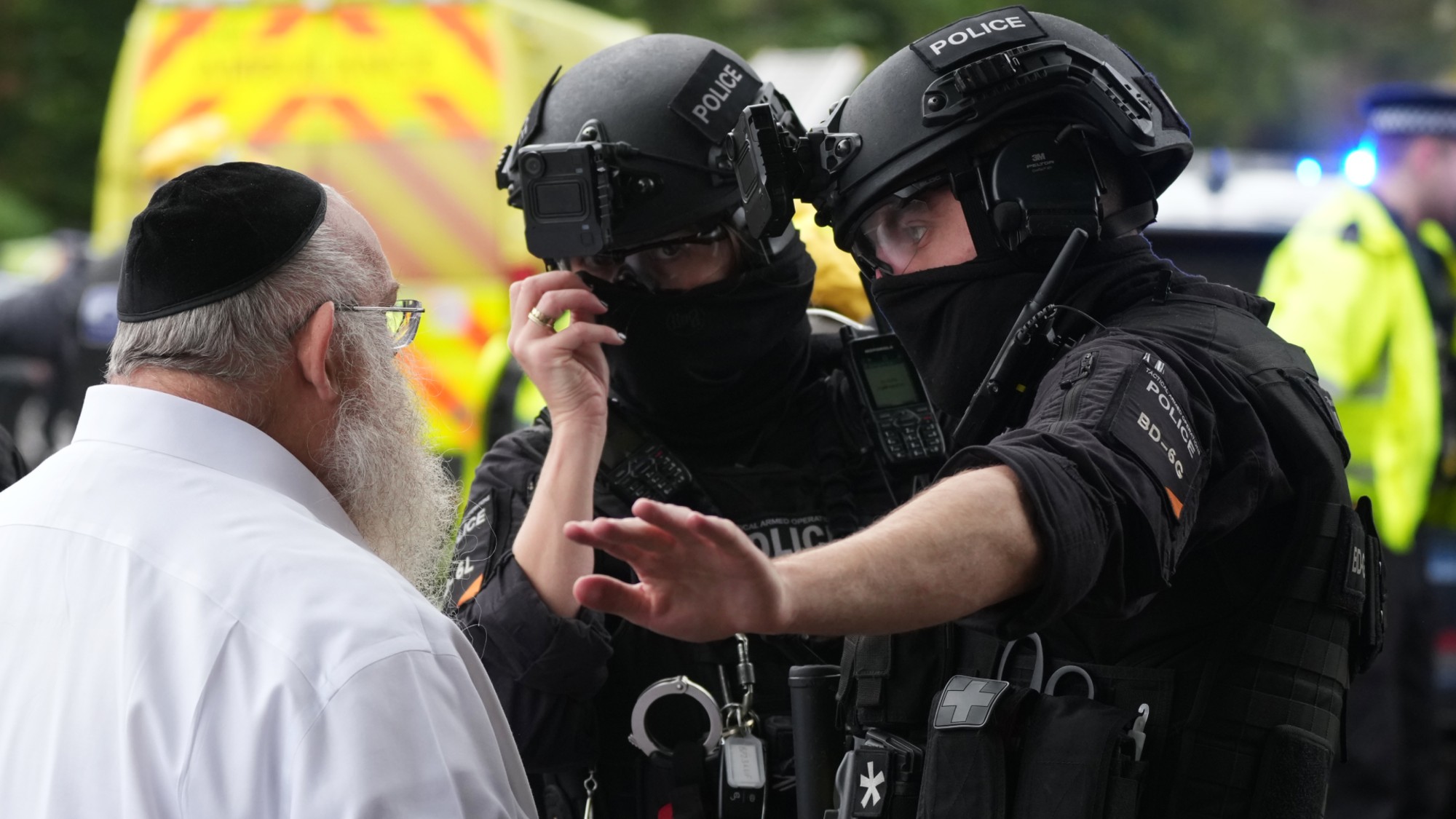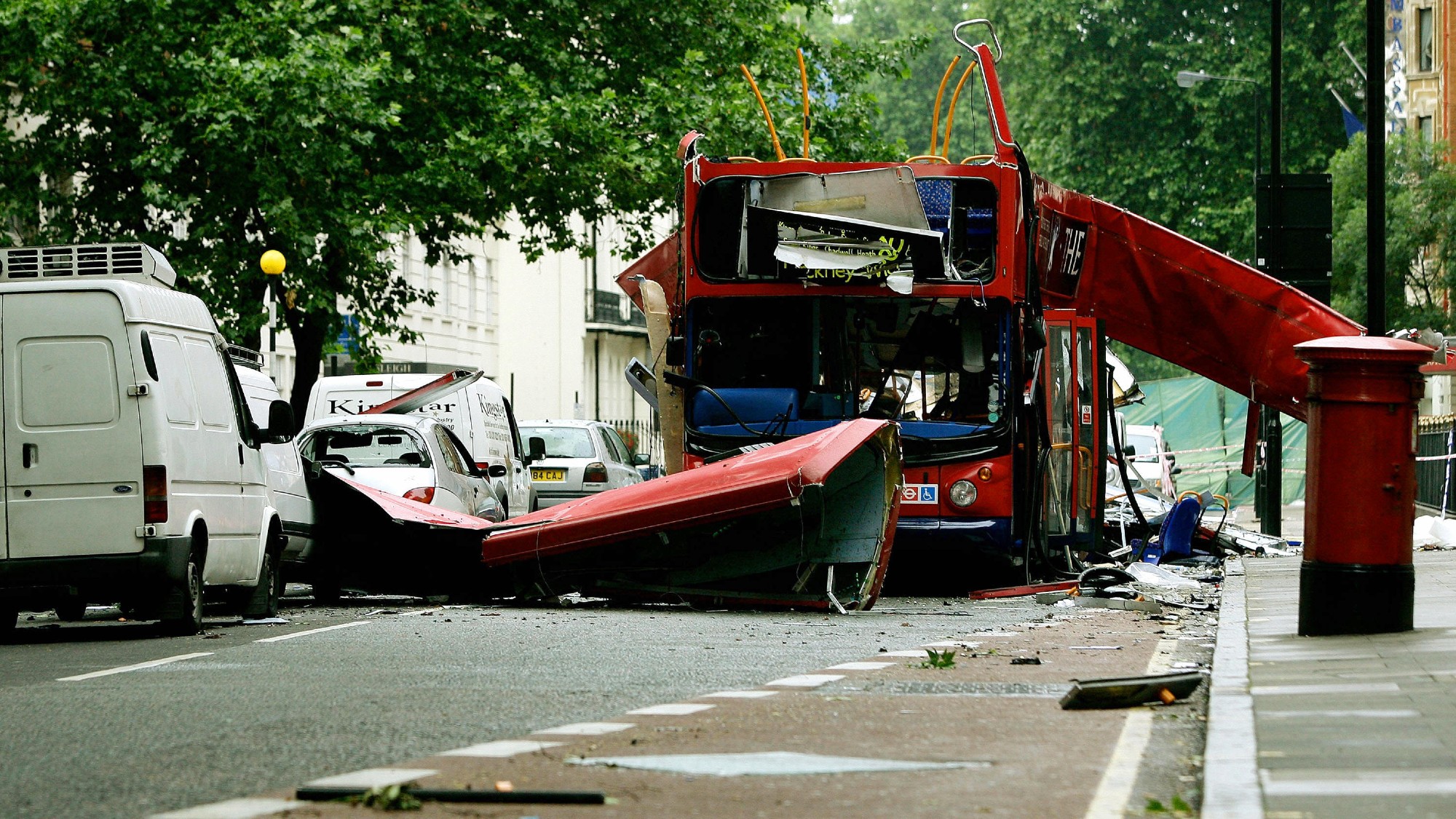Manchester Arena bombing: report criticises fire service
Coroner’s inquest to decide if fire services delayed response could have saved lives

A free daily email with the biggest news stories of the day – and the best features from TheWeek.com
You are now subscribed
Your newsletter sign-up was successful
A report on last year’s Manchester Arena bombing, which claimed the lives of 22 and injured more than 100, has roundly criticised the city’s fire service.
The review, by Lord Kerslake, says “out of the loop” fire crews took more than two hours to attend the scene of the blast, despite a paramedic arriving within 11 minutes.
Suicide bomber Salman Abedi detonated his home-made device at 10.31pm, as concert-goers were leaving a concert by US singer Ariana Grande. Fire crews arrived two hours and six minutes later, even though the average response time is under six minutes.
The Week
Escape your echo chamber. Get the facts behind the news, plus analysis from multiple perspectives.

Sign up for The Week's Free Newsletters
From our morning news briefing to a weekly Good News Newsletter, get the best of The Week delivered directly to your inbox.
From our morning news briefing to a weekly Good News Newsletter, get the best of The Week delivered directly to your inbox.
Kerslake finds poor communication meant Greater Manchester Fire and Rescue Service (GMFRS) was “brought to the point of paralysis”, despite having a plan in place for dealing with marauding armed terrorists. He says “risk-averse” chief fire officers kept emergency-trained responders away from any zone of danger.
The ambulance service, arena staff and British Transport Police are all praised by Kerslake for showing “enormous bravery and compassion”.
Would the earlier arrival of fire crews have made a difference to the medical outcome of the injured? That is “a question that only the coronial inquests can decide”, Kerslake writes.
He concludes, however, that firefighters “would have been much better placed to support and, potentially, to accelerate the evacuation of casualties from the foyer” if they had gone to the scene earlier.
A free daily email with the biggest news stories of the day – and the best features from TheWeek.com
Kerslake said both GMFRS and north-west fire control accepted they had “let down the people of Greater Manchester and other visitors to the city that night”.
The Times says Greater Manchester police “will be deeply disappointed at what the Kerslake panel deemed the failure to smoothly manage the agencies at their disposal, and with paramedics sent in to risk their lives unaware of whether more terrorists were at large”.
Vodafone also comes in for “heavy criticism”, says The Guardian, because its network suffered a “catastrophic failure” which meant an emergency phone system to help people get information in the event of a terrorist attack failed to work properly.
Not only did this hamper police communications, it also left a number of anxious families unable to find out the whereabouts and condition of missing and injured relatives.
As well as focusing on the emergency services, the review explores the media response and how families of victims were treated in the immediate aftermath of the tragedy.
While there was condemnation from victim’s relatives of press intrusion in the days and weeks after the attack, others reserved their ire for politicians. One relative told Kerslake: “My family feel very angry and let down by the government as there has been no help, support or funding in any way... if it wasn’t for the generosity of the public... we would probably be homeless.”
In response, Greater Manchester Mayor, Andy Burnham, who commissioned the report, said there should be “no scapegoating” and argued that despite describing the failure by fire chiefs as “extraordinary” and incredible, Kerslake had concluded the emergency response was “overwhelmingly positive”.
A previous review by the former Independent Reviewer of Terrorism Legislation found that MI5 might have been able to prevent the attack, having dismissed two pieces of intelligence on Abedi that were “highly relevant” to his plans.
-
 Why is the Trump administration talking about ‘Western civilization’?
Why is the Trump administration talking about ‘Western civilization’?Talking Points Rubio says Europe, US bonded by religion and ancestry
-
 Quentin Deranque: a student’s death energizes the French far right
Quentin Deranque: a student’s death energizes the French far rightIN THE SPOTLIGHT Reactions to the violent killing of an ultraconservative activist offer a glimpse at the culture wars roiling France ahead of next year’s elections
-
 Secured vs. unsecured loans: how do they differ and which is better?
Secured vs. unsecured loans: how do they differ and which is better?the explainer They are distinguished by the level of risk and the inclusion of collateral
-
 How the ‘British FBI’ will work
How the ‘British FBI’ will workThe Explainer New National Police Service to focus on fighting terrorism, fraud and organised crime, freeing up local forces to tackle everyday offences
-
 How the Bondi massacre unfolded
How the Bondi massacre unfoldedIn Depth Deadly terrorist attack during Hanukkah celebration in Sydney prompts review of Australia’s gun control laws and reckoning over global rise in antisemitism
-
 Who is fuelling the flames of antisemitism in Australia?
Who is fuelling the flames of antisemitism in Australia?Today’s Big Question Deadly Bondi Beach attack the result of ‘permissive environment’ where warning signs were ‘too often left unchecked’
-
 Ten years after Bataclan: how has France changed?
Ten years after Bataclan: how has France changed?Today's Big Question ‘Act of war’ by Islamist terrorists was a ‘shockingly direct challenge’ to Western morality
-
 Arsonist who attacked Shapiro gets 25-50 years
Arsonist who attacked Shapiro gets 25-50 yearsSpeed Read Cody Balmer broke into the Pennsylvania governor’s mansion and tried to burn it down
-
 Manchester synagogue attack: what do we know?
Manchester synagogue attack: what do we know?Today’s Big Question Two dead after car and stabbing attack on holiest day in Jewish year
-
 The Miami Showband massacre, 50 years on
The Miami Showband massacre, 50 years onThe Explainer Unanswered questions remain over Troubles terror attack that killed three members of one of Ireland's most popular music acts
-
 The failed bombings of 21/7
The failed bombings of 21/7The Explainer The unsuccessful attacks 'unnerved' London and led to a tragic mistake